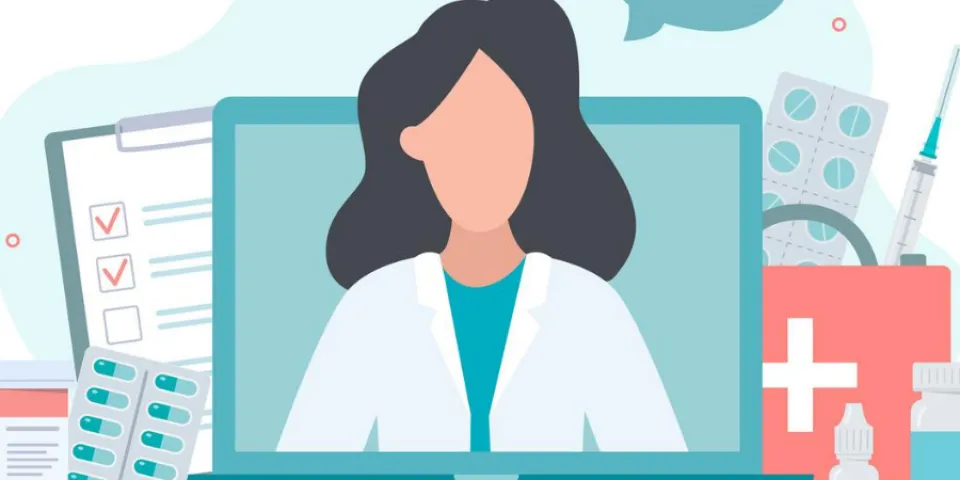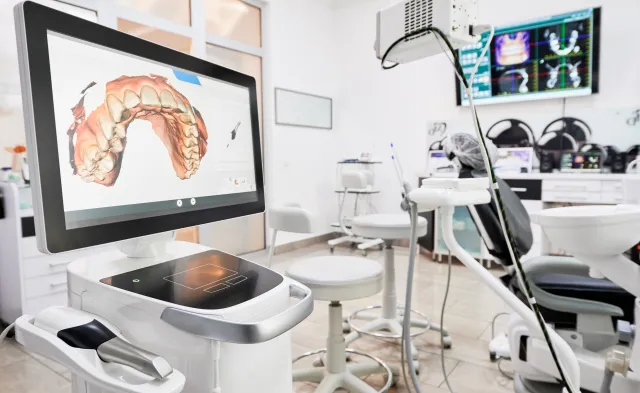Latest
Telehealth: Changing the Future of Nursing Practice
Aug 6, 2020

Healthcare is no longer just practiced in medical offices, hospitals, clinics and in-person. With technology’s evolving role in healthcare, there has been a greater push for telehealth as a way to reach more people, especially with recent concerns with the coronavirus pandemic.
Telehealth is the use of electronic information and communication technologies to support clinical healthcare, health education and healthcare administration. This can be done over great distances and sometimes even asynchronously. Telehealth is different from telemedicine. Telemedicine focuses on remote clinical services whereas telehealth also encompasses non-clinical services.
Herzing University realizes that remote care service through telehealth is the future of healthcare. The school’s Psychiatric Mental Health Nurse Practitioner (PMHNP) programs place a greater emphasis on the importance of this tool to provide quality and accessible care for all patients. While physical health is vital, mental health is equally as important.
Here are some ways that telehealth is shaping the future of nursing and nursing education:
Introduces technology in the classroom
Clinical and classroom experience is vital to adequately prepare future nurses, which is why telehealth has been brought into the classroom to better prepare students. Herzing’s programs focus on including implementing current technology, workflow planning, legal and ethical practices in remote healthcare and other key telehealth principles.
Telehealth is also a component of the MSN-PMHNP curriculum. Herzing has adapted its curriculum to reflect the growing need for patients to connect remotely with their nurses. You can earn some of your 540 clinical hours in telehealth engaging in such programs as:
- Grief counseling
- Mental health education for inmates
- Psychiatric assessments in the emergency room
The program offers 100% online coursework and pledges clinical placement. Telehealth is not only beneficial for patients but nursing students too. It provides clinical experience for students and prepares them to play a key role in the future of healthcare. The program understands the potential impact of utilizing telehealth to increase quality and accessibility, which is why it’s threaded throughout the curriculum.
Contributes to a growing workforce
The healthcare industry is expected to grow as much as 14 percent between 2018 and 2018 according to the Bureau of Labor Statistics (BLS). Telehealth allows greater flexibility for patients who might otherwise find mental healthcare inaccessible due to travel or medical conditions. Telehealth has already alleviated some of the need for mental health assistance in rural areas.
Telehealth can also be very effective. According to a study, 94 percent of patients reported being happy with the quality and effectiveness of care received through telehealth channels. Patients feel a greater sense of privacy and less social stigma because care is conducted through the privacy of personal technology. As the baby boomer population continues to age, there is a possibility that telehealth will better meet their needs when they cannot travel on their own. Because of the greater accessibility, the effectiveness in reaching patients, as well as the changes brought about by COVID-19, telehealth is anticipated to grow seven-fold according to Healthcare IT News.
Positive changes in telehealth
The need for telehealth will continue to grow. Here are three positive changes that telehealth is expected to see in the future:
1. Greater healthcare flexibility
Not only does telehealth provide flexibility in terms of location, but it also more effectively uses patients’ and nurses’ time. Nurses can choose to connect with their patients in real-time through video channels and even screen patients before administering care. However, nurses might also choose to conduct patient care asynchronously through patient portals and chats.
2. Extended options for patients and nurses
Some healthcare providers are now extending coverage for telehealth so that patients can more readily get help for their medical needs. There has also been an effort to “normalize” telehealth in the industry. The AMA put out a Telehealth Quick Guide for doctors and nurses to better prepare them to adapt to telehealth in light of the COVID-19 pandemic.
3. More common healthcare practice
COVID-19 has made telehealth more common and accessible for healthcare providers and their patients. Even some healthcare practices have returned to "normal", the commonality of remote treatment will most likely remain. Both patients and healthcare providers see the benefits of telehealth and there will be more changes to regularly implement it in common healthcare.
Learn More About Our PMHNP Programs
BLS pay estimates calculate the median annual wage for various occupations. Per the BLS the median wage for an occupation is: "The wage at which half of the workers in the occupation earned more than that amount, and half earned less. Median wage data are from the BLS Occupational Employment and Wage Statistics survey." Bureau of Labor Statistics (BLS), U.S. Department of Labor, Occupational Outlook Handbook 2024. BLS median wage estimates do not represent entry-level wages and/or salaries. Multiple factors, including prior experience, age, geographic market in which you want to work, and degree level and field, will affect career outcomes, including starting salary and earnings as an experienced employee. Herzing neither represents that its graduates will earn the median salaries calculated by BLS for a particular job nor guarantees that graduation from its program will result in a job, promotion, particular wage or salary, or other career growth.
Latest
Recent Blog Posts
Subscribe to our Newsletter
Get the latest news you need to know, from study hacks to interview tips to career advancement. Have it delivered right to your inbox biweekly.








